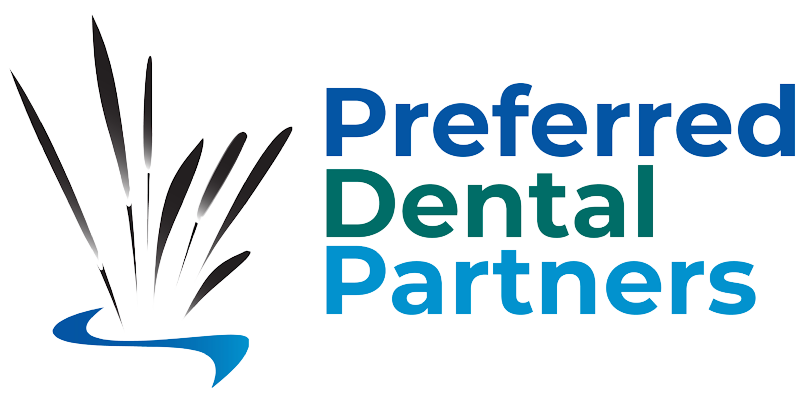TMJ Treatment
Don’t Let Stress, Or Anything Else, Wear Down Your Smile
If opening and closing your mouth is accompanied by discomfort, pain, or clicking in your jaw, you might be suffering from Temporomandibular Joint Disorder, or “TMJ”.
Led by Dr. Borja, Dr. Minnema, and Dr. Oldridge, our team can effectively diagnose and treat TMJ disorders, helping you return to a life free of jaw pain and discomfort.
Don’t just grin and bear it - get the help you need and get relief from jaw pain today!
Live Life Pain-Free!
Understanding TMJ Disorders
TMJ disorders refer to a group of conditions that affect the temporomandibular joints (TMJ), which are the joints connecting your jawbone to your skull, and the muscles and ligaments surrounding them. These joints are among the most complex in the body, allowing for movements needed for chewing, talking, and yawning. When there are problems with the function or health of these joints and the associated soft tissues, it's referred to as a TMJ disorder or syndrome.
Symptoms of TMJ disorders can vary widely but often include:
Pain or tenderness in the jaw, especially at the joint area, which may extend to the ear, face, neck, and shoulders.
Difficulty or discomfort while chewing.
A clicking, popping, or grating sound when opening or closing the mouth, which may or may not be accompanied by pain.
Limited movement or locking of the jaw.
A change in how the upper and lower teeth fit together.
If you're experiencing any of these symptoms, it's important to seek professional help. Early intervention can prevent further complications and improve outcomes. The exact cause of TMJ disorders can be difficult to determine and may be due to several factors, including arthritis, jaw injury, excessive gum chewing, misalignment of the teeth or jaw, stress, and habitual clenching or grinding of the teeth (bruxism).
Our Approach To TMJ Care
At Preferred Dental Partners in Horicon, WI, our approach to managing TMJ disorders is rooted in a deep understanding of the complexities of the jaw and a commitment to providing our patients with the most effective, personalized care possible. Led by Dr. Borja, Dr. Minnema, and Dr. Oldridge, our dentists employ a comprehensive strategy that may include one or more treatments, such as oral appliance therapy and Botox, among others, depending on the individual's specific needs and symptoms. Here's a closer look at our multifaceted approach:
Personalized Assessment and Diagnosis
Our process begins with a thorough evaluation to understand the unique aspects of each patient's condition. This includes a detailed discussion of symptoms, a physical examination of the jaw and mouth, and possibly imaging studies. Understanding the root cause of TMJ disorders is crucial for effective treatment, and our team takes the time to ensure an accurate diagnosis.
Oral Appliance Therapy
For many patients with TMJ disorders, oral appliance therapy offers significant relief. These custom-fitted devices are designed to be worn over the teeth, typically at night. They serve multiple purposes, such as preventing teeth grinding and clenching (bruxism), which is often a contributing factor to TMJ discomfort, and helping to realign the jaw to reduce strain on the TMJ. Each appliance is custom-made to fit the patient's mouth perfectly, ensuring comfort and effectiveness.
Botox as a TMJ Treatment
Botox is increasingly recognized for its ability to provide relief for patients with TMJ disorders. Administered directly into the muscles responsible for jaw tension, Botox injections can significantly reduce pain and discomfort associated with TMJ disorders. This treatment can help relax the muscles, thereby lessening the force applied to the jaw and, in many cases, improving the range of motion. Botox treatments for TMJ disorders are quick, with minimal discomfort during the procedure, and patients often report noticeable improvement within a few days to a week.
A Holistic Approach
Understanding that TMJ disorders can be influenced by a range of factors, including stress, posture, and even sleep habits, our team at Preferred Dental Partners also considers holistic interventions. This may include stress management techniques, dietary adjustments, physical therapy exercises to strengthen the jaw muscles, and advice on improving posture to reduce strain on the TMJ.
Ongoing Support and Care
Managing TMJ disorders is often a journey, not a quick fix. Our team is committed to providing ongoing support and care, adjusting treatment plans as needed based on the patient's progress and feedback. Follow-up appointments are a critical part of our approach, allowing us to monitor the effectiveness of the treatment and make any necessary adjustments.
Frequently Asked Questions
-
TMJ disorders can arise from a variety of factors, often making it challenging to pinpoint a single cause. Some of the common contributors include:
Jaw Injury: Trauma to the jaw or temporomandibular joint can lead to TMJ disorders.
Arthritis: Various forms of arthritis, such as osteoarthritis and rheumatoid arthritis, can affect the TMJ, causing deterioration and inflammation of the joint.
Bruxism: Constant clenching or grinding of the teeth puts excessive pressure on the TMJ, potentially leading to disorders.
Stress: High stress levels can cause individuals to clench their jaw or grind their teeth, exacerbating TMJ symptoms.
Alignment Issues: Misalignment of the teeth or jaw can lead to abnormal functioning of the jaw joint.
Connective Tissue Disorders: Conditions that affect the body's connective tissues can impact the TMJ as well.
-
How Are TMJ Disorders Diagnosed?
Diagnosing TMJ disorders typically involves a combination of methods:
Medical History and Physical Examination: Detailed discussions about symptoms and a physical exam focusing on the jaw, bite, and alignment can provide initial insights.
Imaging Tests: X-rays, CT scans, or MRIs can help visualize the bones, joint, and soft tissues, offering a clearer view of the problem.
Dental Models: Impressions of your teeth might be taken to study your bite and alignment more closely.
Joint Vibration Analysis: This technique measures vibrations produced when the jaw moves, which can indicate TMJ disorders.
-
Treatment for TMJ disorders varies widely, depending on the severity and underlying cause:
Medications: Pain relievers, anti-inflammatories, and muscle relaxants can help manage symptoms.
Oral Appliances: Custom-made dental splints or night guards can prevent teeth grinding and realign the jaw.
Physical Therapy: Exercises to strengthen jaw muscles, improve mobility, and reduce pain.
Botox Injections: Can relieve muscle tension and reduce pain in some patients.
Stress Management: Techniques such as biofeedback, mindfulness, and relaxation exercises can reduce clenching and grinding due to stress.
Surgical Procedures: In severe cases, procedures like arthroscopy or open-joint surgery might be considered.
-
Some mild TMJ disorders may improve over time with self-care practices and minor lifestyle adjustments. However, persistent or severe symptoms require professional intervention to prevent further complications and achieve long-term relief.
Find relief now!
If you're struggling with TMJ-related discomfort, don't wait to seek treatment. Dr. Borja, Dr. Minnema, and Dr. Oldridge at Preferred Dental Partners in Horicon, WI, are here to provide holistic TMJ care in Horicon & Beaver Dam, WI, in a supportive and friendly environment. Contact us today to schedule your consultation and take the first step toward living without jaw pain.


